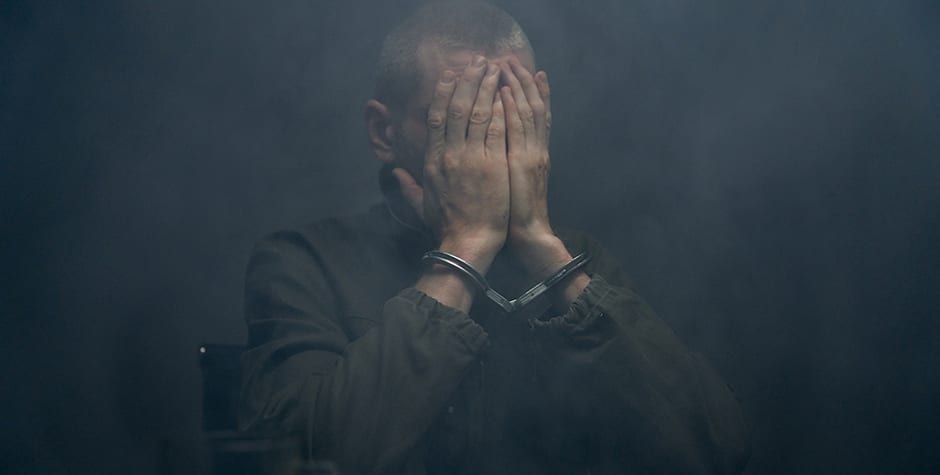Multiple Christians Sentenced to Death as Others Face Mob Violence in Pakistan, ACLJ Warns UN
The U.N. Human Rights Council is having its 53rd Session this summer, and the ACLJ has again filed a number of reports with this international body, detailing human rights abuses in several countries. We have filed these reports for many years through our international affiliate, the European Centre for Law and Justice (ECLJ), which has Special Consultative Status with the U.N. In addition to filing written reports, our attorneys regularly appear before the Human Rights Council to present oral interventions.
One of the countries we filed about is Pakistan and our brothers and sisters in Christ who live there. Unfortunately, the misuse of the blasphemy laws in Pakistan has resulted in systemic persecution of religious minorities. As a result, it has been ranked as the seventh worst country in the world for persecution of Christians.
Our report recently filed with the U.N. discusses blasphemy laws:
Not too long ago, there were dozens of blasphemy cases registered every year. On average, about fifty cases of blasphemy were reported annually. Over the last five years, however, the average number of recorded blasphemy cases per year rose to 112. A total of 208 cases were recorded in 2020, followed by eighty-four in 2021, and 171 in 2022. Since the 1980’s, over two thousand cases have been registered under these laws, dozens of people have been murdered, Christian homes and even entire villages have been vandalized and burned down, and hundreds of people have been imprisoned.
The report specifically discussed two cases our affiliate in Pakistan, the Organization for Legal Aid (OLA), has been working on for years. In the first case:
Shahzad Masih, a young Christian who was only sixteen years old when he was charged in July 2017 under section 295-C of the Pakistan Penal Code, and wrongfully tried as an adult. Unlike most blasphemy cases, even the false accusation leveled against Shahzad does not constitute blasphemy. During a religious conversation with his Muslim colleague, which the Muslim colleague initiated, Shahzad told him that his father’s Muslim friend, Ali, blasphemes when he hears anyone’s name that has Muhammad in it. . . .
Instead of accusing his father’s friend, [an] angry group [of religious extremists] handed Shahzad over to the police. . . . His trial took more than five years, after which the court sentenced Shahzad to death by hanging.
The report highlighted the level of mob fear and the lack of due process that prevails in such cases. Even though all the witnesses testified that Shahzad told a Muslim co-worker that his father’s friend made derogatory remarks against the Prophet Muhammad and the investigating officer testified that Shahzad was not guilty of any crime, the trial court still sentenced him to death.
The second case that our report highlighted is of two Christian brothers, Qaiser and Amoon Ayub, who were accused of posting blasphemous content on the internet. A Muslim man came across a website that contained anti-Islam material. The homepage had Qaiser’s name as the author. It also had a phone number and office address that were registered under the name of his younger brother, Amoon.
Amoon, OLA’s client, told us that days before the discovery of the website in question, his brother, Qaiser, had a fight with a Muslim friend. The Ayub brothers believe that their information must have been posted on the sacrilegious website by the Muslim friend. Disregarding this information and without having proper incriminating evidence, the trial court sentenced the Ayub brothers to death.
Our report detailed the trial court’s flawed reasoning in its December 2018 judgment, which stated:
[T]he presence of the Ayub brothers’ contact information on the blasphemous website clearly led to the conclusion that they were responsible for creating the website.
Based on a similar erroneous reasoning, on June 8, 2022, the Lahore High Court’s Rawalpindi Bench upheld their death sentence.
Amoon’s wife has been visiting him in prison every week for the last eight years since his arrest. We have seen both Amoon’s wife and Shahzad’s (mentioned above) mother crying and pleading for their husband and son, respectively.
In addition to these two cases, our report also discussed the case of Muhammad Waris, a Muslim man who was attacked earlier this year by an angry mob because he allegedly desecrated the Quran, a crime punishable with mandatory life imprisonment.
Waris was being held in police custody when an angry mob attacked the young man, dragged him from the police station through the street by his legs, stripped him of all his clothes, beat him to death, and attempted to set his body on fire.
In yet another case that was reported in November 2022, Ishtiaq Saleem, a Christian man, was arrested for allegedly sharing images of sacrilegious tattoos on WhatsApp and Facebook. Even though Saleem is illiterate and would not have been able to understand the alleged words in the tattoo and was not even aware of such a post until he was arrested, he was charged with several sections of the Pakistan Penal Code related to blasphemy.
Finally, the report requested the Human Rights Council to urge Pakistani authorities to curb the violence that is committed by angry mobs in the name of religion, false accusations of blasphemy, and take measures to ensure that courts are equipped to provide justice and not succumb to mob pressure in handing out erroneous convictions in such cases.
We will continue fighting to inform the international community of the injustices being carried out in Pakistan. We cannot carry out this vital work without the generous support of our donors. Your donations are literally saving lives in parts of the world that don’t have the same freedoms we enjoy in America.
